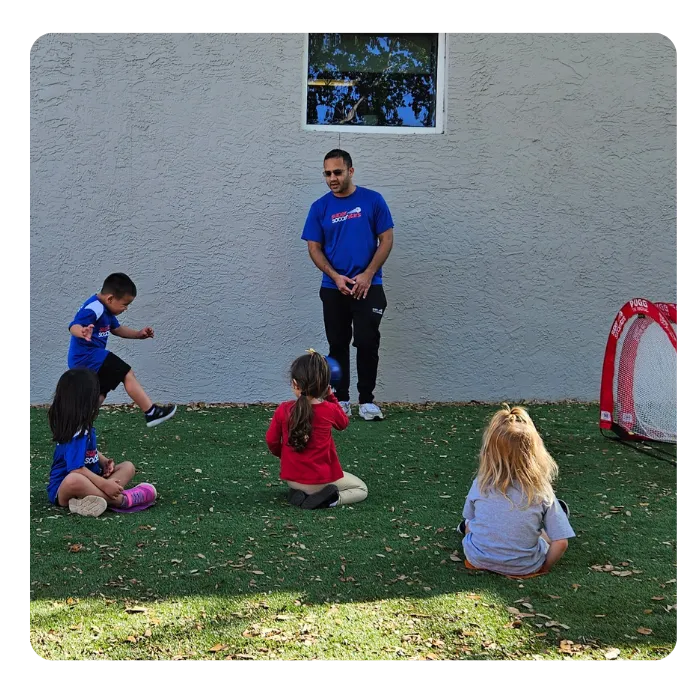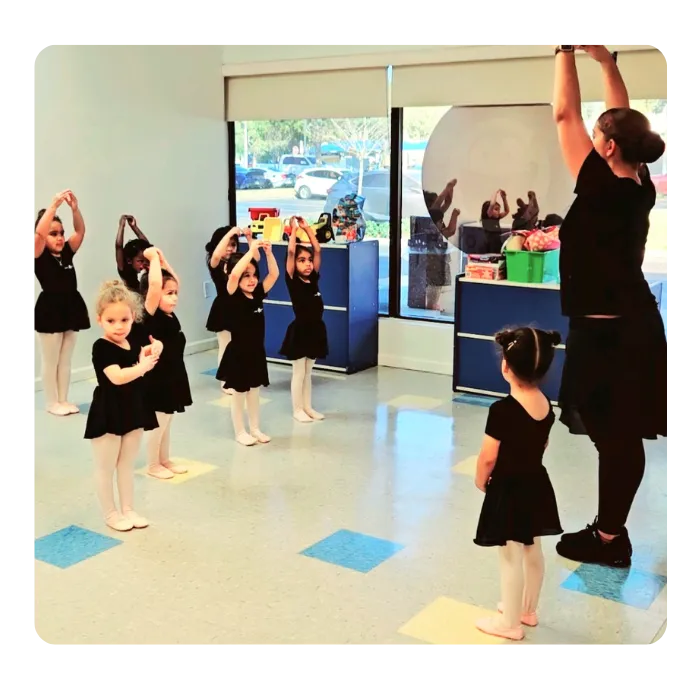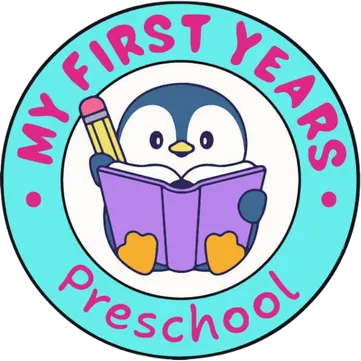
Best Preschool and After School Care in Davie, Florida
High-quality childcare for children aged 6 weeks to 5 years and After School Care up to 9 years old, Monday to Friday, 7:00 AM to 6:00 PM
Why Choose My First Years Preschool for the Best Childcare in Davie, FL?
Everything we do is centered around our amazing children. This is a magical time in your child’s development, and we’re here to nurture that magic every single day!
At My First Years Preschool, we help children expand their comfort zones in a way that’s safe, secure, and highly individualized.
We provide a safe, loving, and engaging environment where your child’s early learning journey begins. From infants to toddlers, preschoolers, VPK, and After School Care we support each child’s growth through developmentally appropriate, play-based learning. Our dedicated teachers foster a sense of belonging, creativity, and curiosity, creating a welcoming space for your child to learn, explore, and thrive.
Whether you're looking for nurturing infant care, a stimulating toddler program, or a VPK curriculum that prepares your child for kindergarten, My First Years Preschool is here to support your family every step of the way.
What We Believe
At My First Years Preschool, our team of qualified, experienced teachers are passionate about early childhood development. We partner with parents to raise confident, kind, and curious kids.

Our research-based Learning Beyond Paper curriculum and care practices focus on:
Empathy, kindness, and respect
Exploring the world through structured and free play
Nurturing creativity and self-expression
We are not just babysitters – we are your family!
Through individualized and compassionate care, we look forward to welcoming you to the My First Years family in Davie, FL!
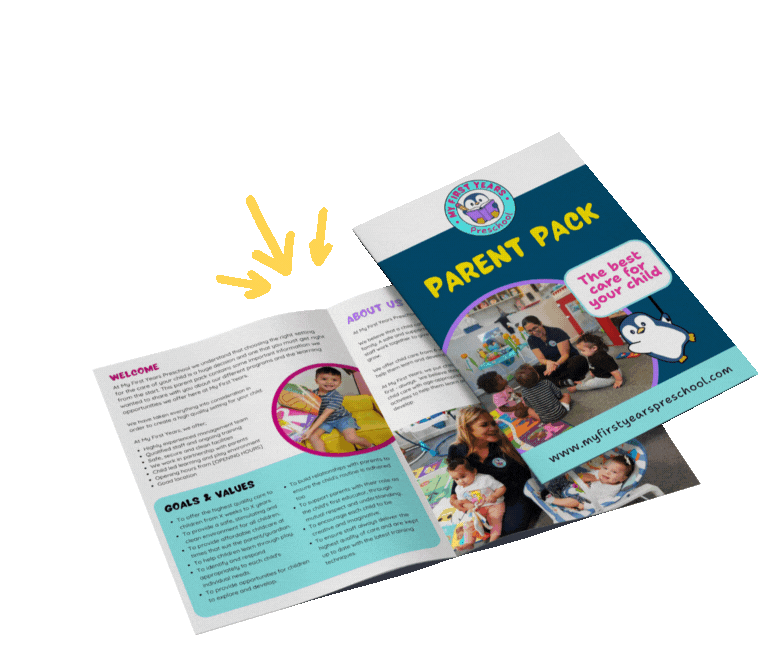
Get Our Free Parent Pack
Available in Spanish & English
We’d love to send you a FREE parent pack, full of helpful information about My First Years Preschool…
About Our Davie Location in Florida
Situated in the heart of Davie, Florida, our preschool is easily accessible via I-595 and major roads, making it convenient for families commuting throughout Broward County.
Since our founding in 2012, we’ve worked hard to provide the best possible childcare experience in Davie. Our dedicated team continuously updates our practices and facility to reflect the latest in early childhood education.
Voted BEST PRESCHOOL 2024 & Trusted by Parents for Over 15 Years!

Some of the things that make our school unique include:
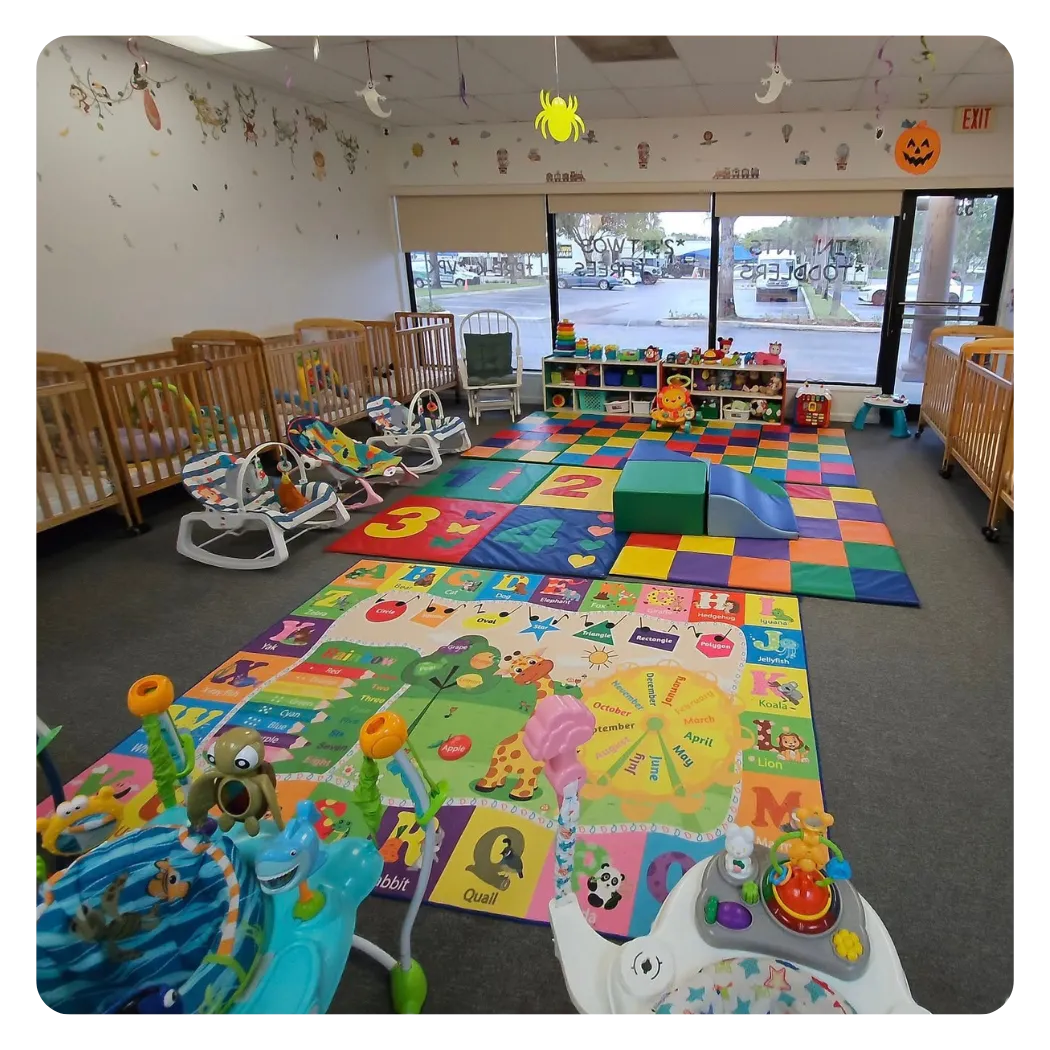
A colorful, spacious campus with dedicated spaces for infants, toddlers, and preschoolers!
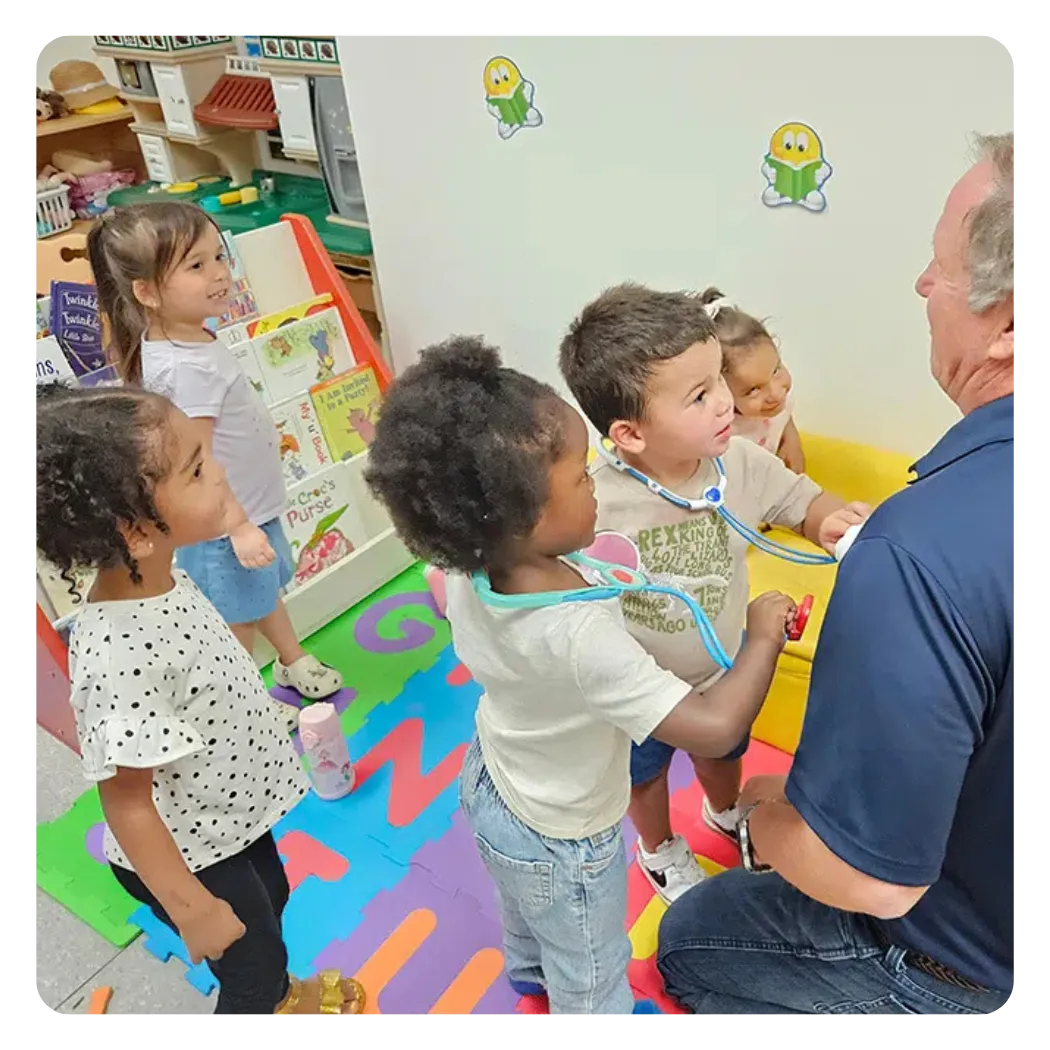
Learning Beyond Paper, a curriculum that blends academics and social-emotional learning to prepare children for kindergarten!
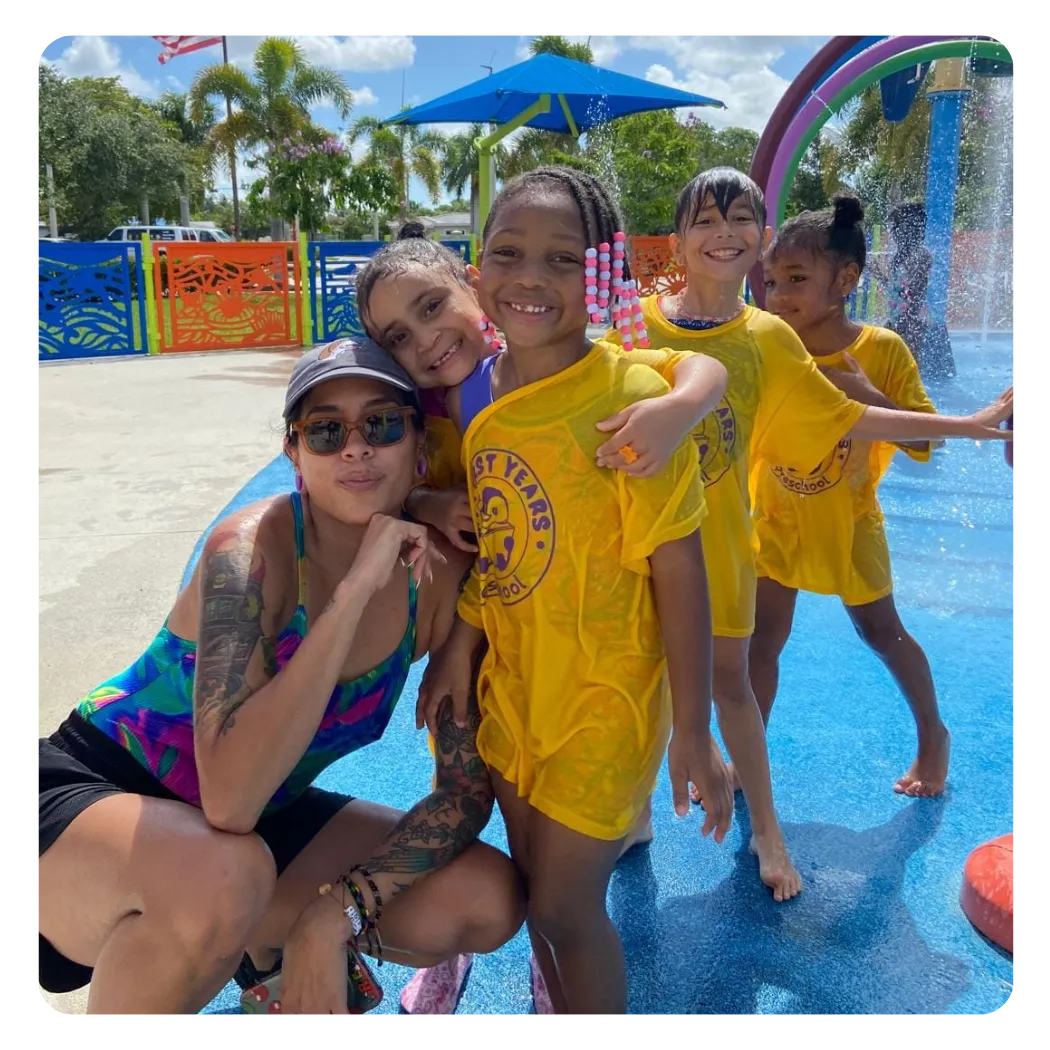
Exciting themed events like Splash Day, character visits, and holiday celebrations!
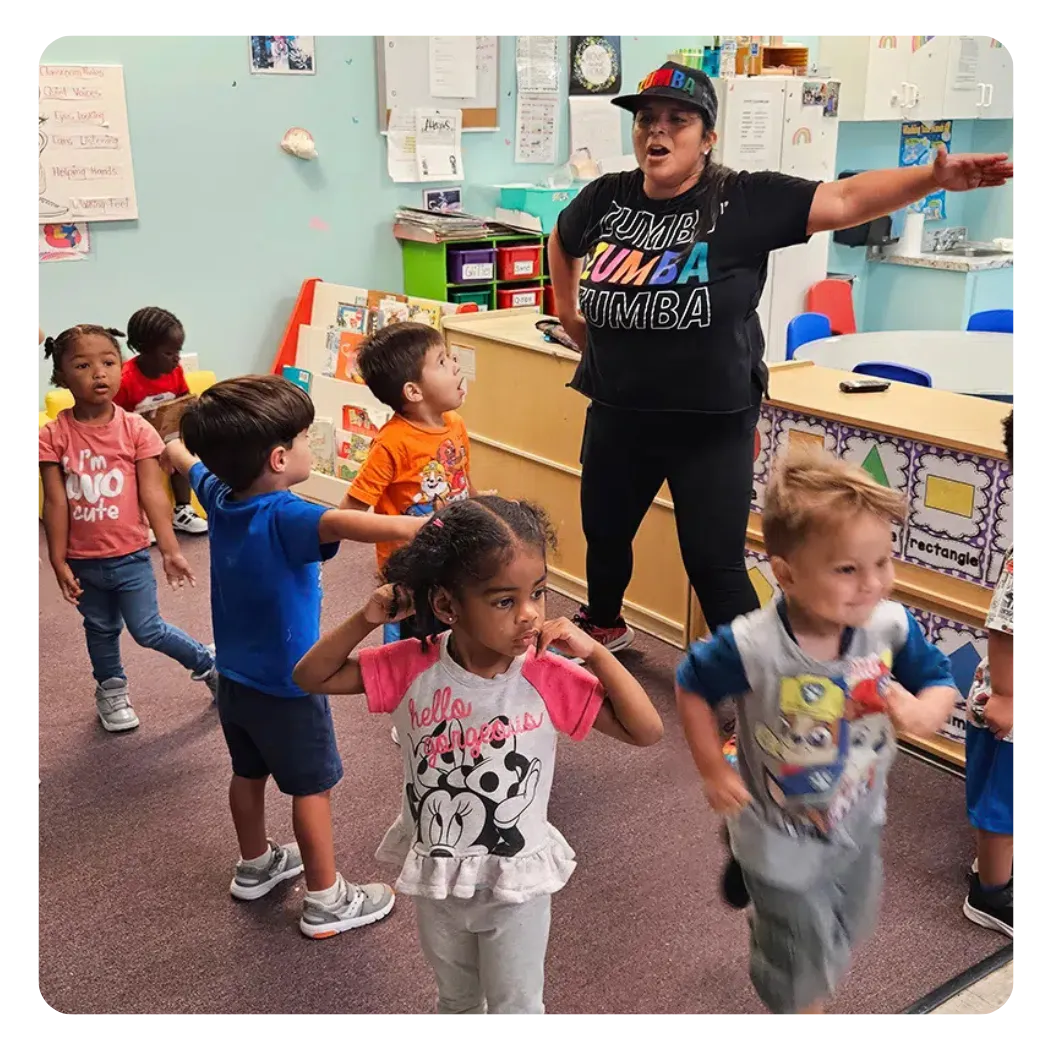
Enrichment programs like gardening, Spanish, music, and dance!
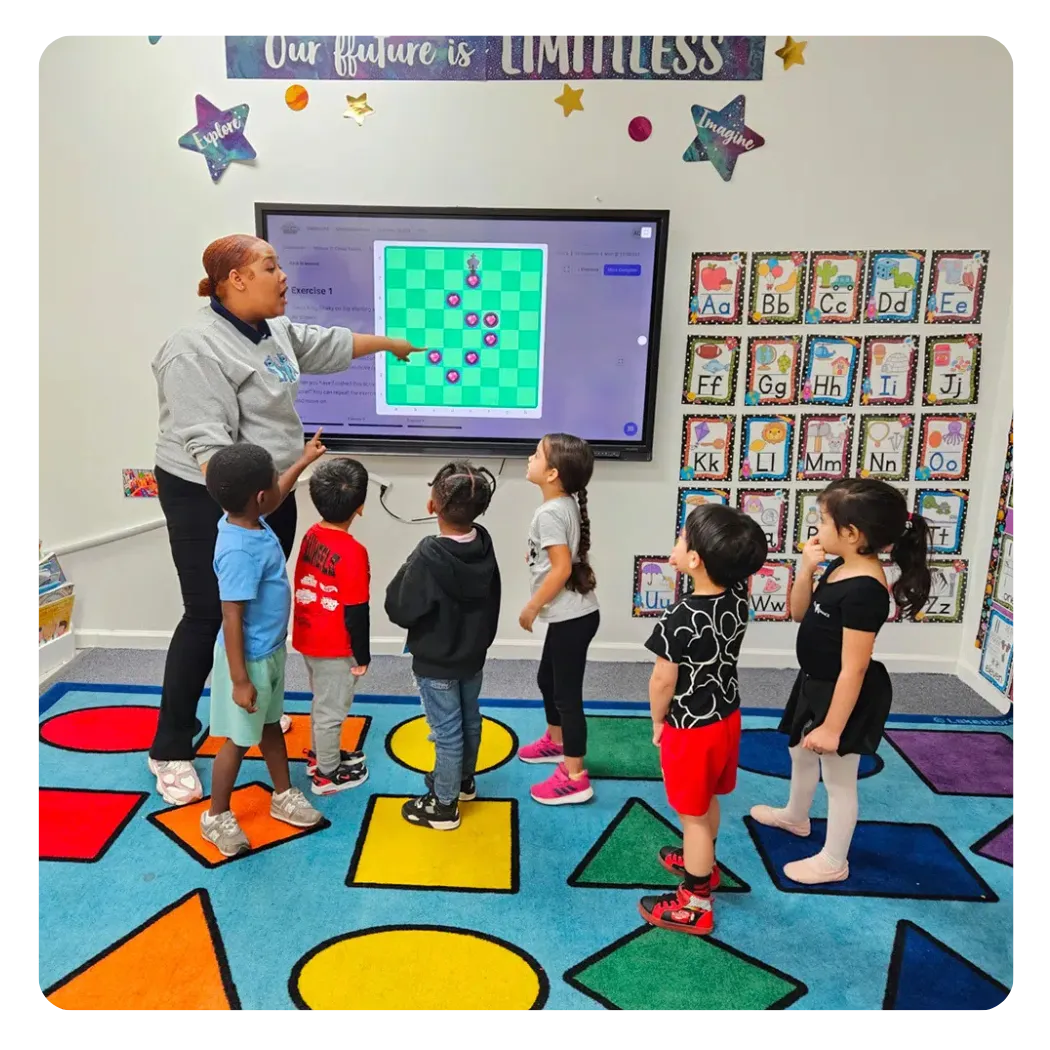
Chess at 3 – a unique curriculum where your little one can learn to play a full game of chess!
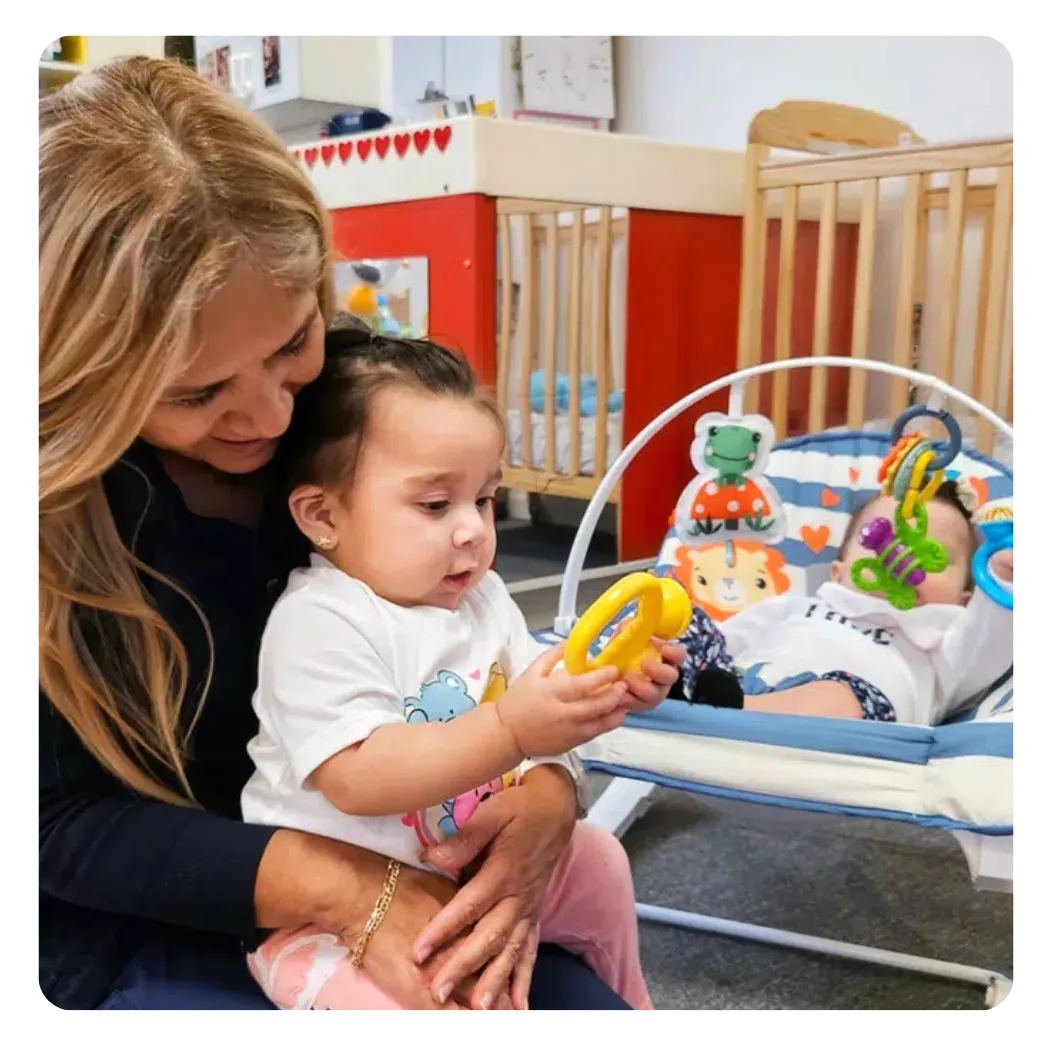
After School Care to support busy families in our local community!
Extra-curricular activities, including soccer and ballet, to spark a love of learning and movement
Chess at 3!
At My First Years Preschool, we’re excited to offer the Chess at 3 Program— an imaginative and effective way to introduce children as young as three to the game of chess through storytelling and play. Designed by early childhood experts, this program helps build critical thinking, problem-solving, and social-emotional skills in a fun, age-appropriate way.
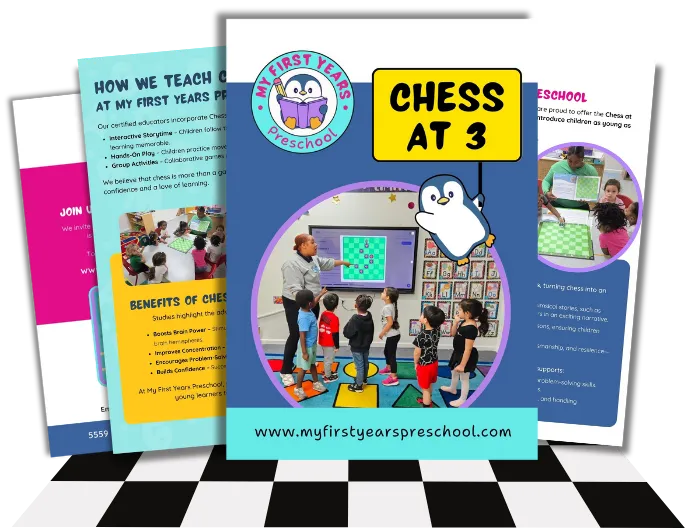
Amazing Facilities For Your Child
Here’s a glimpse at what your child will enjoy:
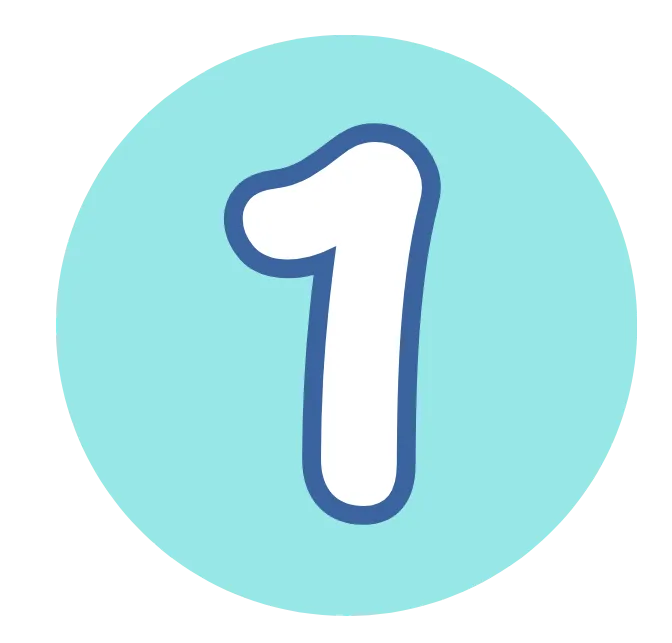
Indoor and outdoor play area to ensure mind, body, and social growth throughout the year
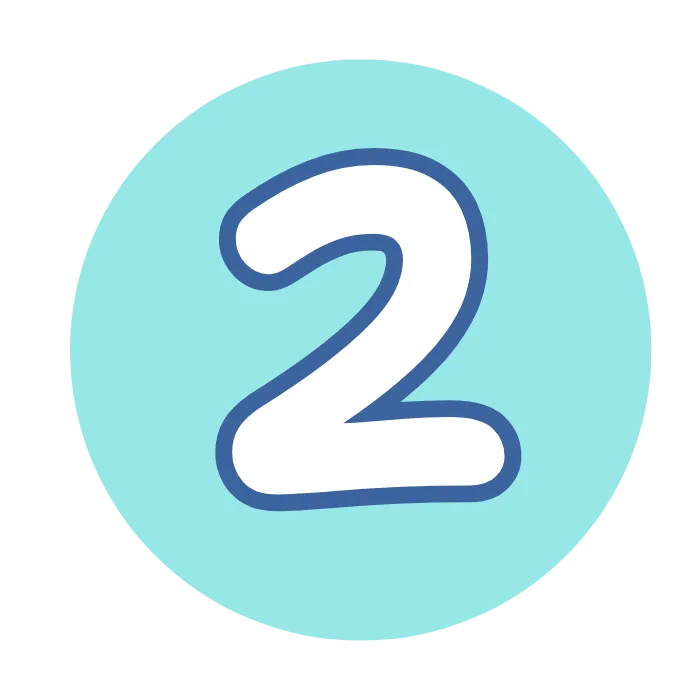
Bright, developmentally appropriate classrooms with updated resources and safety in mind
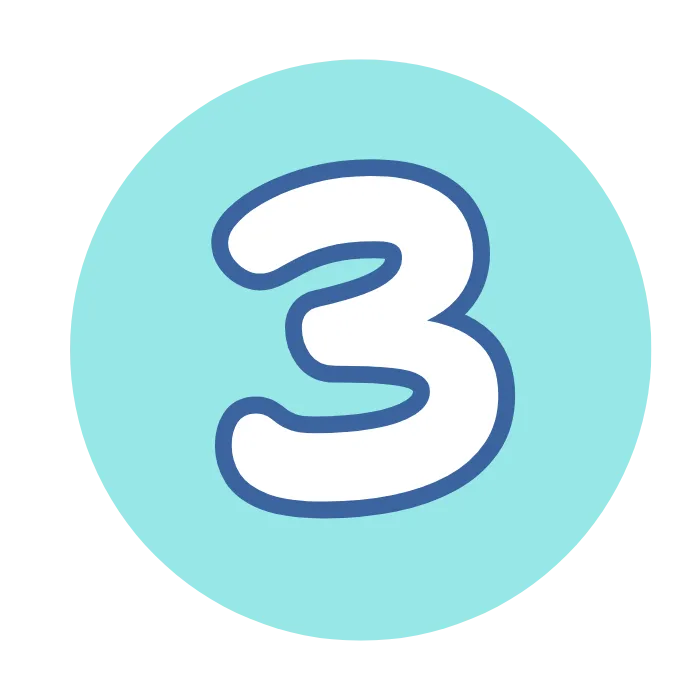
Separate infant and toddler rooms for age-appropriate learning and care
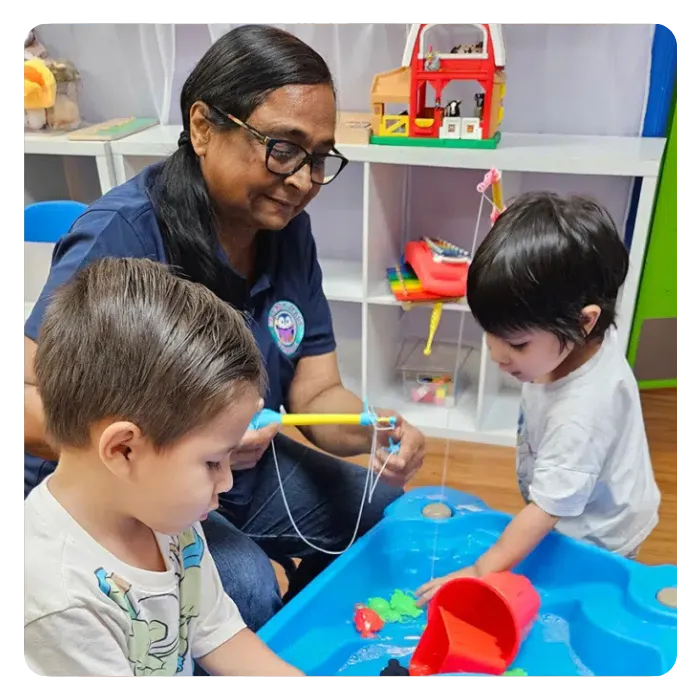
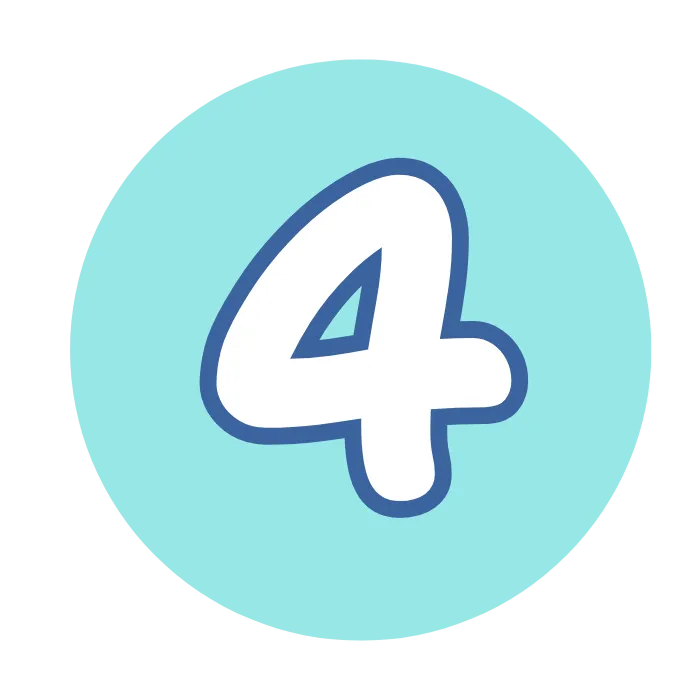
Interactive learning centers for STEM, literacy, and sensory exploration
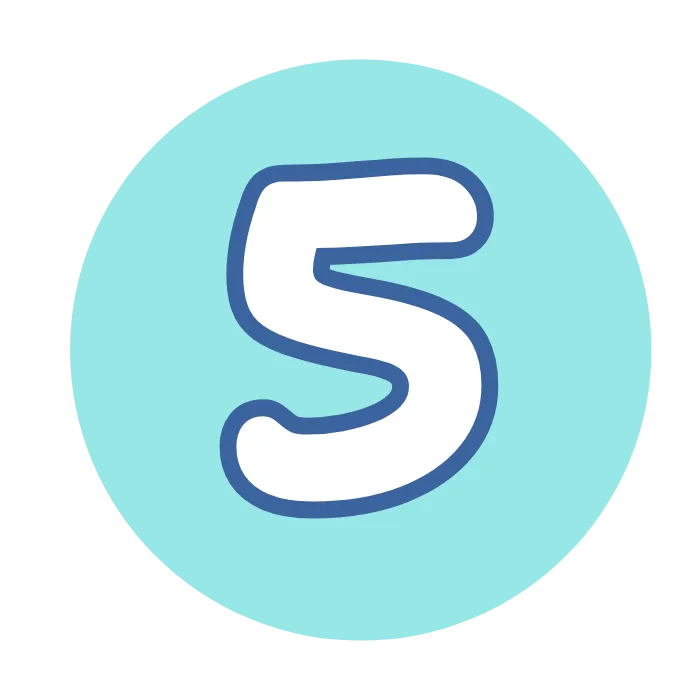
Top-notch security (secure entrances, cameras in every classroom and on the playground for full visibility, and a Finger-Safe Door System) for each child’s safety, and every parent’s peace of mind
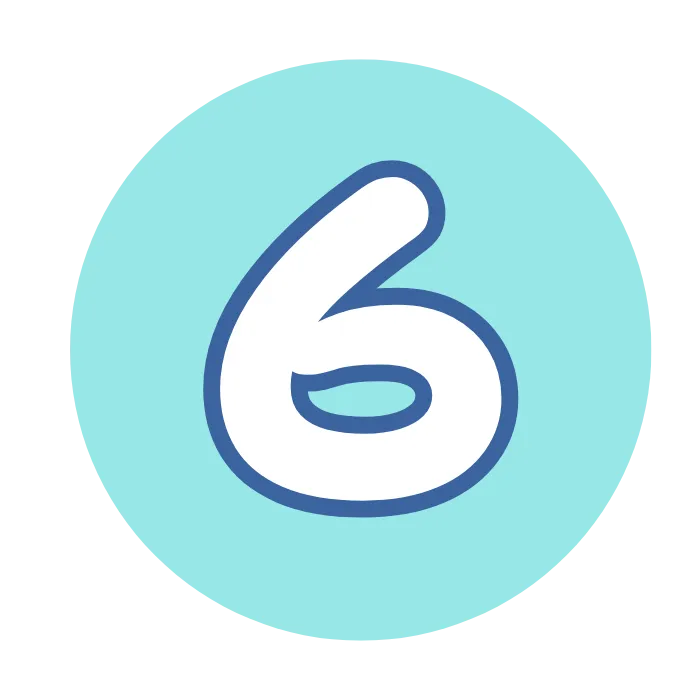
Exceptional Learning Beyond Paper and Chess at 3 curricula to develop children’s skills in ever capacity
Our Commitment To Safety
Here at My First Years Preschool, we take the safety of every child seriously. We’ve implemented protective measures throughout our center to ensure a clean, secure, and welcoming environment.
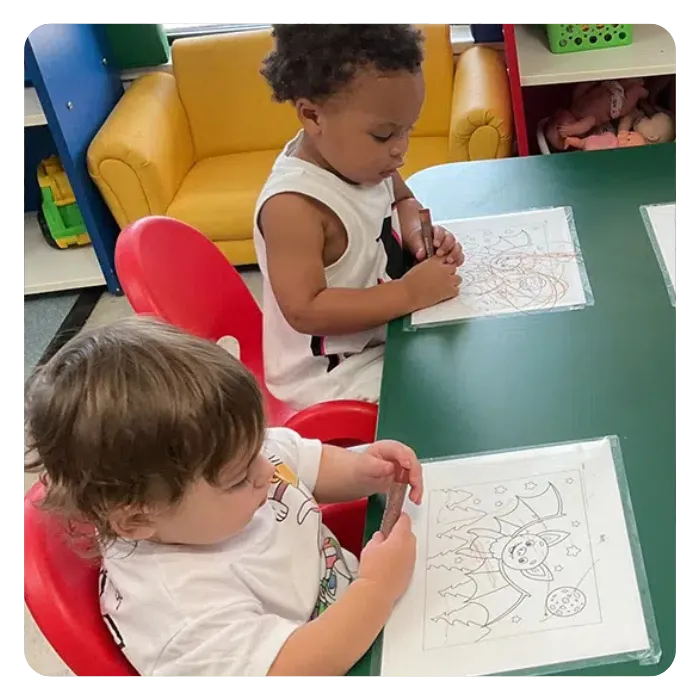
Cleanliness Protocols
We use child-safe, hospital-grade disinfectants daily and follow rigorous handwashing and hygiene practices to reduce the spread of germs.
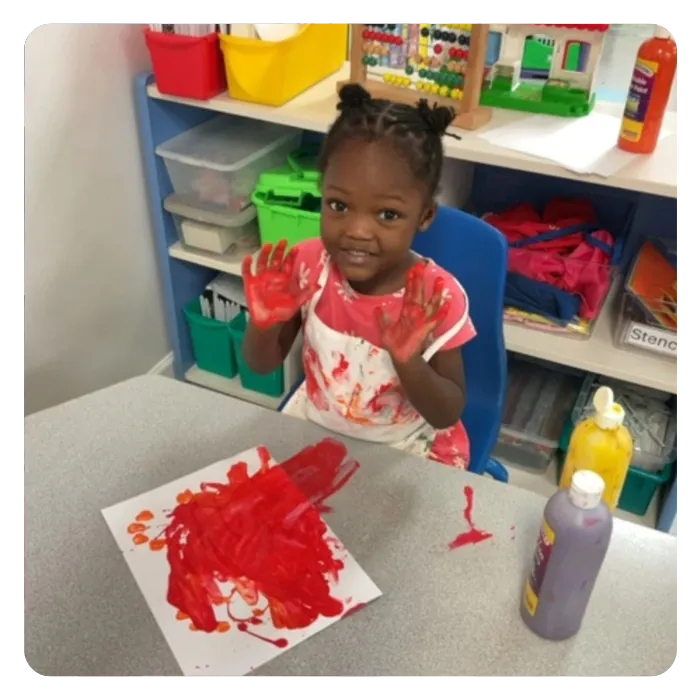
Security
Access to our building is secured via keypad entry, and only authorized personnel and registered parents are allowed on campus. Cameras operate in every classroom and we are committed to each child’s safety every day they walk through our doors.
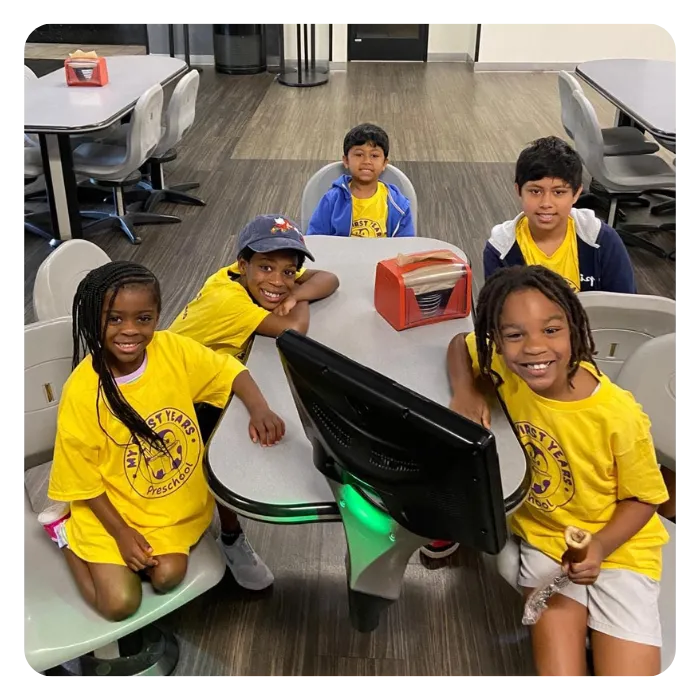
Transparency
We understand that peace of mind is everything. Through the Procare™️ App, we will keep in daily communication with you about your child’s progress, and upcoming notices, and you’ll be able to see what they’re learning – no matter where you are!
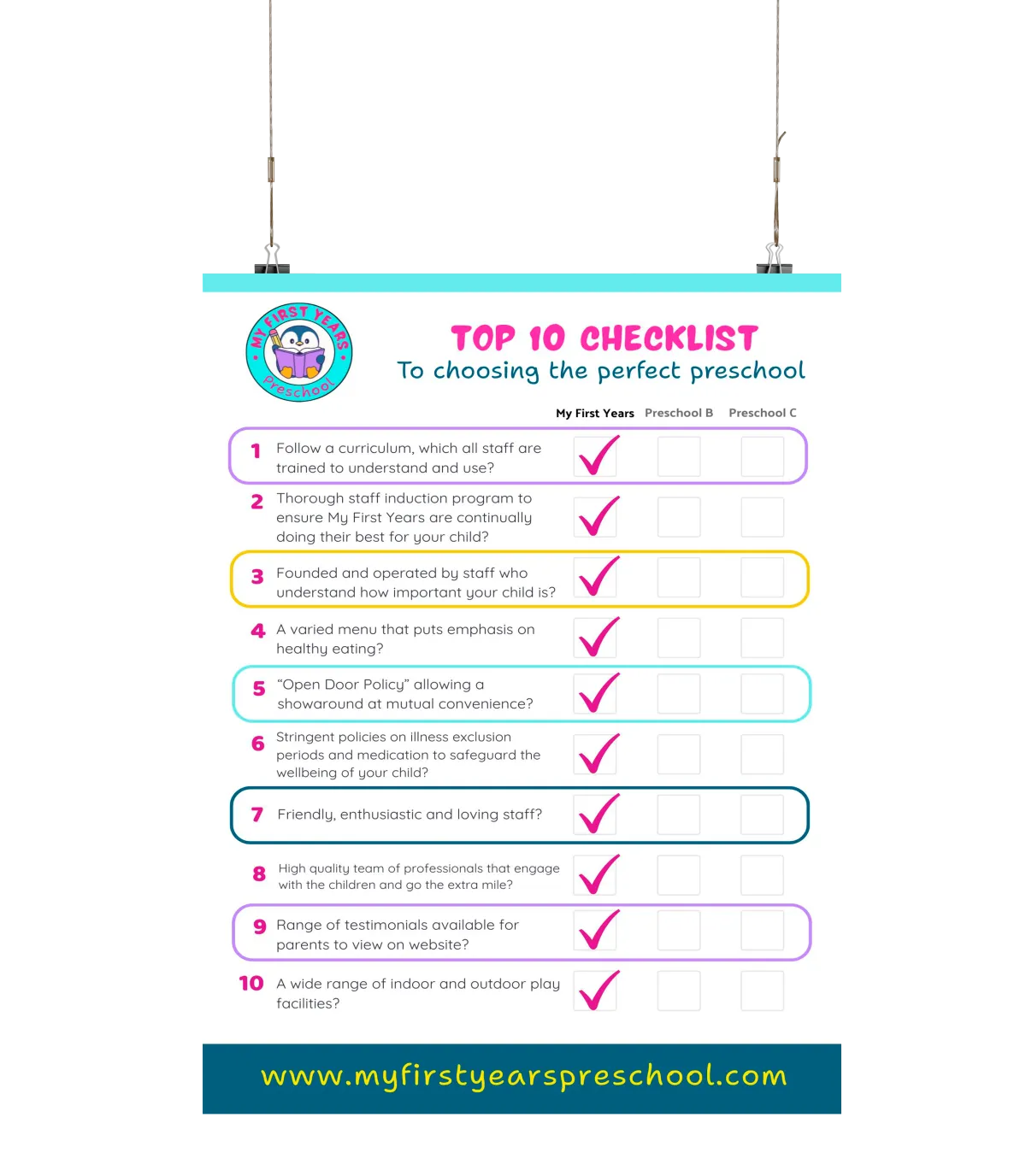
Get Our Free Guide
Choosing the right preschool isn’t easy. That’s why we created a FREE guide to help you choose the perfect fit for your family, whether it’s us or another provider.

Here’s What Our Happy Parents Have To Say
We love our families, and they love us! See what parents have to say about their experience at My First Years Preschool
"We couldn't be happier with our experience at My First Preschool Years. The staff is incredibly nurturing, always making sure that our child feels safe and valued. My son has not only learned so much, but he also looks forward to school every day! The curriculum is both fun and educational, fostering creativity and curiosity. It's clear that the teachers truly care about the kids' growth and development. We are so grateful for the positive and supportive environment they've created for our little one!"
- Josef S.
"My son knows everyone here and that’s because the environment here is very close and welcoming. I feel safe dropping off my son in the am knowing he will be happy when I pick him up ! I recommend this school for many reasons and have zero bad things to say owners are nice and friendly and extremely welcoming to my son ! His teachers are by far the best Ms Stacey and Ms Sandra <3 this school has many perks you won’t be disappointed at all give them a chance I did a year ago and I’m not disappointed at all!!"
- Kujtime C.
I am so grateful for My First Years Preschool. My daughters attend VPK at My First Years, and they are VERY happy. The new owners are a wonderful couple who are putting a lot of heart and professionalism into the school. They hand-picked the director and teachers (who are top-notch). I had toured several VPKs in the area, and when I finally toured My First Years - it was, by far, the obvious choice. In addition to the teachers being amazing, the facility is clean, bright, freshly painted, has new materials and toys, and the classrooms are large. The playground is also big and has shade. I couldn't be happier with my choice, and I hope other parents take a tour of My First Years Preschool before making a final choice elsewhere - I am so glad I did! 🎨🖍️🥁🧸🛝🖌️
- Sara E.
"One of the best schools in South Florida. Ever since my daughter started going to this school she has gotten smarter and smarter every day. Teachers are awesome and have a lot of knowledge. They teach my daughter something new everyday. Staff is perfect and they are always kind and nice. I have never seen a school that cares that much about their students like My First Years Preschool does."
- Silvia C.
"The staff there are so friendly, positive and make learning fun. My son was in the infant and 1 year old class. In the morning the teacher would put on calming music which helped him get comfortable and he would not cry when I had to drop him off. He enjoyed his time there with the other kids as well. We will miss everyone there and wish them all the very best. Thank You for doing such a great job!!!"
- Sarah P.

Schedule a Tour at My First Years Preschool
We provide engaging and interactive tours at our Davie location daily! Schedule your tour and see what makes My First Years an incredible experience for your child and a beautiful addition to your family!
